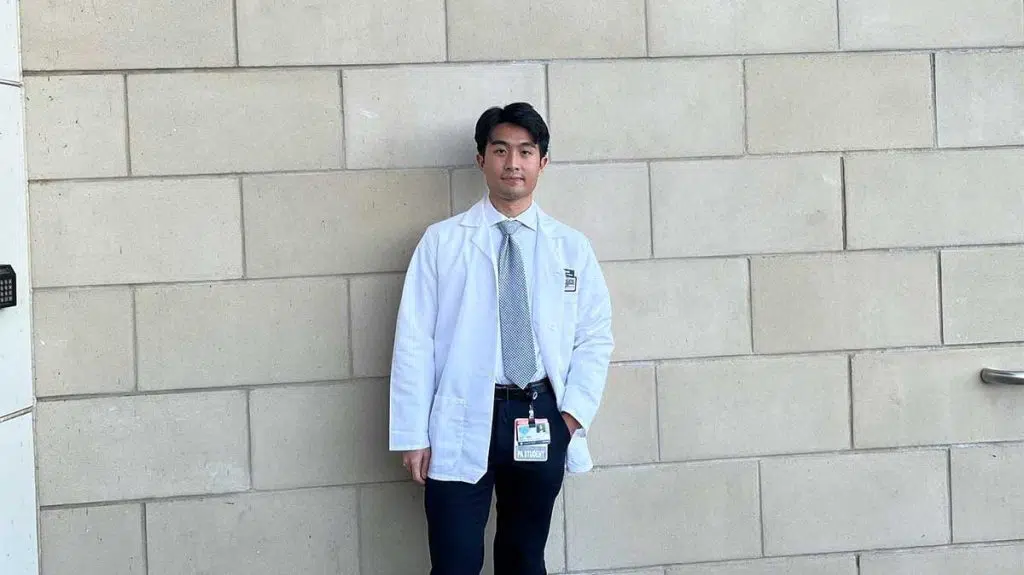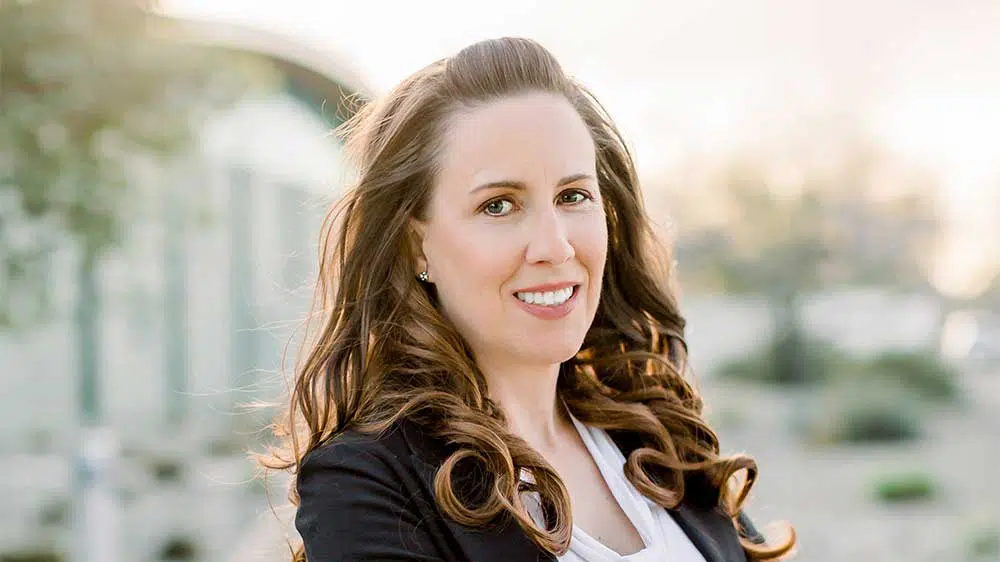Ark Behavioral Health Student Scholarship | Fall 2021 Winners

We asked students to answer the question “How Did Coronavirus Change the Way You Think of Mental Health?” in 600-800 words. It was a tough decision but we’re proud to present the scholarship winners for Fall 2021:
Winner Of $1,000 Scholarship

Henry Tran – 22 yrs old – Albany Medical College
March 2020 was the first month that lockdown began. Spring break was coming up and I was joking with my friends by telling them, “See you in 4 weeks.” A few weeks had gone by, and I realized that this lockdown is going to stay for a while. My mental health was not the best going into lockdown. I remember making calls to my mentor to talk about my worries about graduating, and my struggle to find happiness. The pandemic only exacerbated my stressors. April 8th, 2020, I left a journal entry for the first time in my life. In this entry, I talked about feeling angry and lonely, I talked about how sleeping is the best relief, because I am not awake, and I talked about death. Quarantining and being isolated from others truly showed me how unhappy I was with myself and my life. It opened my eyes to the aspects of my life that I have pushed aside to maintain a happy and outgoing personality. Even though it was a painful and dark experience to go through, I felt like it was needed to start my journey to healing.
Mental health is usually something that gets overlooked. In my situation, I would distract myself by hanging out with friends, playing video games, or working out. No one wants to feel like there is something internally unhealthy about themselves, because that is hard to deal with. Recovering from a cut takes a little bit of time but recovering from anxiety can take months or years. Sometimes people can’t even recover from their mental health illness, instead, they manage it better through various techniques like medicine or professional help. The stigma of mental health can also cause people to feel even more reluctant to reach out for help. Characteristics such as lazy, weird, awkward, and weak, are sometimes used to describe someone who is depressed or anxious. With these descriptions, not only is the person dealing with a medical condition, but now they may start labeling themselves as these negative traits; therefore, making their mental health even worse. What is worse is when the people you surround yourself with, don’t acknowledge the struggles you are facing. I still remember the way my parents reacted to my mental health problems. My mind was clouded with the stress of tuition and missing the financial aid deadline, and without realizing it, I dropped a bowl on the ground, and it shattered. I ran up the stairs tearing up and my parents came up afterwards. They asked me what was wrong, and I told them that I was under a lot of stress and pressure. They responded, “Oh thank goodness, I thought it was something serious. Just sleep it off and don’t worry about it.” At that moment, I felt like maybe I was in the wrong and that it wasn’t a big deal. I brushed it off like they said, but it returned later, repeatedly. I kept ignoring it until lockdown happened.
As I mentioned earlier, quarantine was the real eye opener. The struggles and thoughts I were hiding for years were finally put into the light. Pushing it aside and distracting myself were my instinctive ways of coping with my mental health, but with COVID-19 and the lockdown, I couldn’t really do these things. All I had was time to lay down by myself and to figure out what was going on. For me, the coronavirus led me to being more open about my mental health. I was more aware of my emotions, which allowed me to take more control of my situation. I was no longer pushing my thoughts aside, rather, I was accepting it and then finding ways to cope with it. For the past few months, I was volunteering as a crisis text line counselor, helping people who are dealing with these mental health problems, and using myself as an example for others. I am truly in a better place now. Simply put, quarantine showed me that mental health problems are similar physical health problems. You must treat it and give it time to heal. Ignoring it only makes the problem prolong and worsen. Coronavirus led to other complications and difficulties, but it helped me understand my mental health more clearly.
Winner Of $250 Scholarship

Vanessa Grifford – 41 yrs old – Arizona State University
Ironically, I think decades of agoraphobia, germaphobia and anxiety prepared me very well for a pandemic. When the world seemingly shut down overnight, I was OK with staying home. In fact, 2020 was my best year ever. I finally completed my associate’s degree after 22 years of trying and graduated with high honors. I was accepted to Arizona State University and offered a 2-year STEM scholarship. I made the President’s List in my first semester at ASU and was invited to join Omicron Delta Kappa. I became involved with Students for Sensible Drug Policy and began a self-certification program to become a peer drug educator. I was also accepted to the inaugural cohort of Student’s for Sensible Drug Policy’s Psychedelic Pipeline and asked to speak at their annual conference. Shockingly, I accomplished all of this from my bedroom because everything had moved online during COVID.
But as I was flourishing, I noticed everyone around me starting to struggle, which made me feel a little guilty. I felt bad sharing all my great news while my loved ones were losing jobs, losing homes, getting sick and even losing family members to COVID. For years, I had been so consumed by my own mental illness, I hadn’t noticed how fragile everyone around me also was and the pandemic quickly brought all of that to the forefront.
I have struggled with severe mental illness most of my life. It has affected every goal, relationship, and job I have ever had. I always followed my doctors’ orders but continued to decline. Over the years, I’ve been on 30+ different medications (as many as 7 at a time), I’ve tried every kind of therapy there is, I’ve been hospitalized twice, I underwent electroconvulsive therapy in 2016 and ketamine-infusion therapy in 2018. Nothing worked. I truly gave up and accepted that I would never be a functional member of society, would never have a relationship or family and would never have a career. Then, in early 2019, I started seeing news articles that said psilocybin was being used to treat depression and was so effective, that the FDA had granted it “breakthrough therapy status”, meaning clinical trials could be expedited. I immediately reached out to Johns Hopkins University to inquire if I could be a part of their study. Unfortunately, they already had all the subjects they needed but they provided me with an extensive list of where other similar research was being conducted. I made the decision to travel to a city where psilocybin has been decriminalized and worked with a therapist who provided psilocybin-assisted therapy. My life has never been the same. The depression, anxiety and PTSD nightmares are gone. I’ve been off all medications for nearly 3 years and have never been happier or healthier.
As I got strong enough to return to work, I realized it was time for a career change. I was never going to change anyone’s life as an insurance underwriter. I want to be a part of the research that will be needed to have psychedelics rescheduled from Schedule I so that they can be fully researched and safely made available to others like me who have been failed by conventional psychiatric medicine. Research like this is crucial to advancing treatments (or even cures) for depression, anxiety, PTSD, substance-use disorders, and various other mental illnesses. The timing couldn’t be any more perfect. With the onset of the COVID-19 pandemic, rates of depression, suicide, substance-use disorders, and overdoses have skyrocketed.
It has been heartbreaking to watch those around me struggle with their own mental health when there are potential cures on the horizon but still just out of their reach. A few US cities have decriminalized psychedelics and plant medicines, but they are still federally illegal, and many are (understandably) afraid of the consequences. I think it’s time for us all to change how we think about mental health and open our minds to new treatment options. What we’ve been doing for decades isn’t working. You can’t overdose on psychedelics, and you can’t become addicted to/dependent on them. Once the public understands that the benefits far outweigh the risks and once the government allows them to be fully studied and regulated, psychedelics can save and improve millions of lives and break the cycle of generational trauma.
This scholarship would fill in the remaining tuition gaps and allow me to continue my education so that I can get to work helping those whose mental health has been affected by the coronavirus pandemic.
Written by Ark Behavioral Health Editorial Team
©2024 Ark National Holdings, LLC. | All Rights Reserved.
This page does not provide medical advice.
Questions About Treatment?
Ark Behavioral Health offers 100% confidential substance abuse assessment and treatment placement tailored to your individual needs. Achieve long-term recovery.
100% confidential. We respect your privacy.
Prefer Texting?
Our friendly support team is here to chat 24/7. Opt out any time.







 Learn More
Learn More








